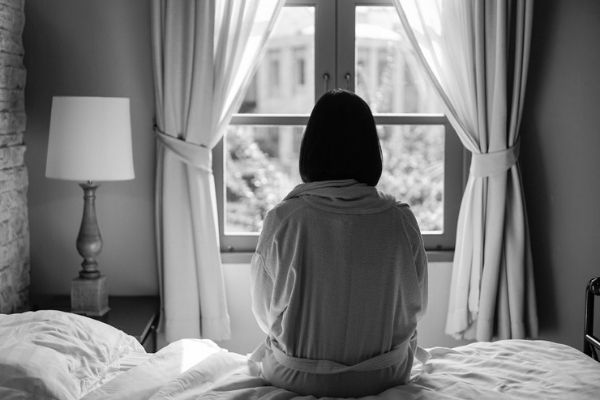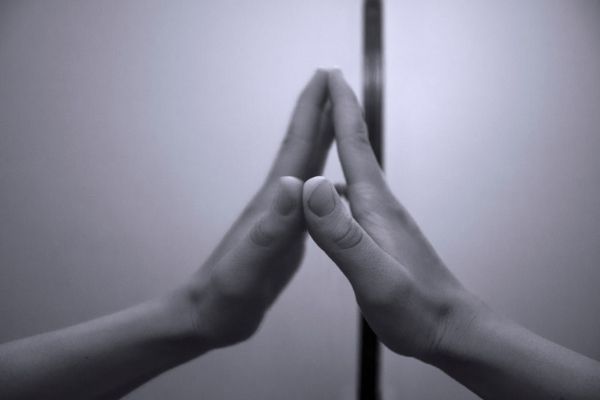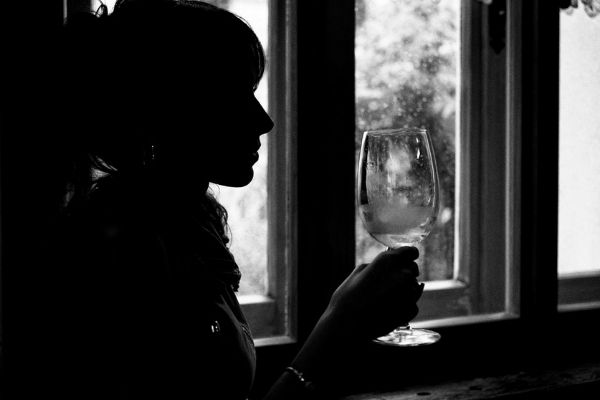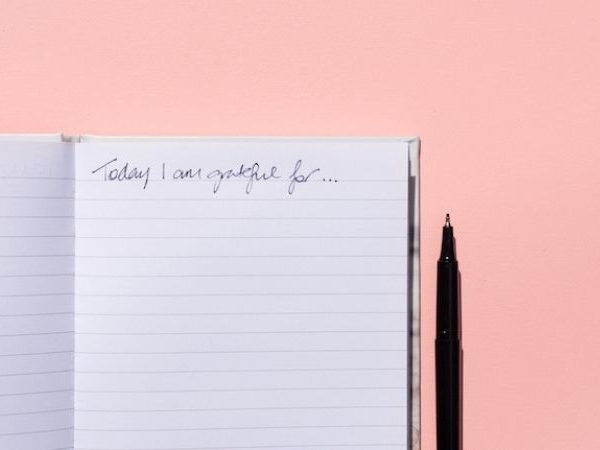From feeling ugly to drinking too much…7 ways childhood trauma is affecting you today
Childhood trauma isn’t only about serious abuse – being bullied or neglected emotionally can leave you with scars that show in your behaviour as an adult, says psychotherapist Emmy Brunner in this fascinating piece
I have been practicing as a psychotherapist for the last 15 years, specialising in working with women with eating disorders and trauma.
However, my interest and expertise in mental health spans beyond with my deep belief that mental health should be looked at from the perspective of the whole person and how all elements of you work together, as opposed to focusing in on one specific diagnosis. I also believe that most mental illness is the result of unprocessed trauma.
In my clinic, when we initially ask people about their trauma history, many deny having experienced trauma because they are often unaware their experiences would be regarded as traumatic.
When most people think of ‘trauma’, they think of those who have been through literal wars and have suffered from Post-Traumatic Stress Disorder (PTSD) as a result. When we talk about trauma, we are not necessarily referring to PTSD (although with some people, this can be the case).
I believe that most mental illness is the result of unprocessed trauma
Trauma is any traumatic event that has either happened to you directly or that you have witnessed. An example of a trauma a lot of people have experienced that many don’t think to mention, is the trauma of being bullied.
Many people first experience bullying as children and these early experiences have a profound impact on how you can feel about yourself and the relationships you then go on to form with others, but we often don’t give these experiences much airtime.
Contextualizing your trauma
Beginning to contemplate your trauma is not about spending time thinking or talking about painful memories, it’s about gaining context. People who haven’t experienced consistent love, care and nurturing can have wounds as gaping as someone who has experienced a violent trauma.
It’s important that you try not to compare your trauma to what others have been through, but to acknowledge your own journey and give it the attention it needs and deserves. This is about considering the impact it had on you and the messages you have taken from those experiences. Healing begins when we honour and embrace our truth.
These are the seven signs trauma that are affecting your behaviour today and how to heal them:

1. You are unable/unwilling to be vulnerable in relationships.
Early trauma damages our ability to trust and to be vulnerable. So many of us find it nearly impossible to be intimate in relationships, and as a result struggle to have meaningful connections both in romantic and platonic contexts.
Acknowledging your fear of vulnerability is very much the first step toward healing it. Though it may be true to say that we are terrified of being seen for who we really are, we are also, conversely, desperate for recognition and for our needs to be heard and validated by others. When we begin to notice how often we ‘shy away’ from showing up as ourselves, we can start to challenge ourselves to engage and connect.
2. You have an internalized sense of inferiority.
Left untreated, feelings of inferiority fester and leave us feeling hopeless and useless. Curiousity is a big part of healing. Ask yourself, why do I feel inferior? What has happened to me that I’m left feeling this way?
We are so ready to accept these self-critical parts of ourselves and it’s only by getting curious as to the origins of these belief systems that we can begin to challenge them. Mindfulness is your friend here as you begin to observe the patterns of your thoughts and challenge the persistent self-deprecation and unrealistic expectations of how you could or should behave.
3. You believe that you are undeserving of love because you’re too fat/ugly/stupid.

This feeling is at the core of so many who are experiencing unresolved trauma. If you have internalised a belief that you are not deserving of love because you are simply not ‘good enough’ then you need to consider the possibility that not only might this not be true, but that this thought has come from a negative experience you have had that has caused you to accept this view of yourself.
It’s only our faith and belief in these thoughts that make them so dangerous. Practicing mindfulness allows us to begin to treat them as fleeting thoughts and they then begin to lose their power.
4. You feel there is something inherently wrong with you.
When we do not talk about our trauma or share how we feel, we internalize that pain and it festers. It builds up within us and makes us angry/scared/anxious and physically unwell. We have a sense there is something deeply wrong within us and begin to believe it is us that is wrong.
This is the buried trauma and pain that is making you feel that way. When you share your truth with people who are in a position to support you, you can then exercise that pain and although this process can be difficult, it is what we all need to be able to heal. It’s not you.
When we do not talk about our trauma or share how we feel, we internalize that pain and it festers.
5. You are frightened of being ‘found out’.
We are terrified that if people ‘knew’ who we really were, we would be rejected. Trauma leaves so many of us feeling incredibly ashamed and we then do all we can to avoid anyone ever being witness to that shame because it’s excruciating. As a result, we then live our lives ‘hiding’ who we really are, and this reinforces the shameful sense we have of being a fraud or fake in some way.
Even when we try to challenge this, we often throw ourselves in the deep end and overshare in situations with people that feel unsafe. To really challenge this belief, we need to create a safe place for ourselves to begin to carefully and slowly open up to trusted parties.
6. You feel like a child, unable to cope.
Your inner child is the echo of a voice within you that represents your child self. Regardless of how old we are, regardless of our status or maturity, we all have an inner child that lives within us and retains all the experiences and beliefs absorbed during our younger years.
If your child has become ‘frozen’ and your emotional beliefs and ideas about the world are undeveloped, then as adults, this fearful child remains within us and we struggle to feel we are able to process and cope with the adult world.
Children nurture the idea that if they change something within themselves or their environment, they can stop bad things from happening. Often this becomes the blueprint for how they go on to build relationships in adulthood.
As adults, we learn to adapt in new relationships, to share only what we feel will be accepted by others. But when we do this, we deny our true selves and inside us, the child is screaming to be heard and taken care of. If we can begin to acknowledge the presence and needs of the child part of ourselves, the adult within us can gain confidence.
7. You have a destructive relationship with food/sex/drugs/alcohol.

When we love and care for ourselves, we are not motivated to hurt ourselves. Those of us that develop destructive relationships with food/sex/drugs or alcohol, are also those of us who are struggling to cope with feelings of self-loathing, low self-esteem and an overwhelming sense of ‘not being good enough’. These feelings almost exclusively come from unresolved trauma. So many of us shrug and accept these feelings as ‘normal’ and something that we simply have to live with.
The truth is that we don’t have to tolerate having such poor relationships with ourselves, just by considering that we perhaps deserve more, we are challenging the dialogue that we have with ourselves and the world around us. When we begin to consider the roots of these old beliefs, we can begin to heal.
Redefine trauma and embrace it
Overall, it is important we redefine the word ‘trauma’ for ourselves and realize it’s not something to be afraid of, but something to explore and embrace, as we understand how specific experiences have shaped the way we are.
Acknowledging these experiences is so important. Do not belittle an experience that in hindsight has felt traumatic to you, but from the perception of others perhaps may not seem like a traumatic experience. It’s a very personal exploration and should be dealt with as such.
It is important we redefine the word ‘trauma’ for ourselves and realize it’s not something to be afraid of, but something to explore and embrace, as we understand how specific experiences have shaped the way we are.
Writing down any experiences that you think could have been traumatic to you (e.g. being raised by loving parents, but parents who demanded an extreme level of perfection with schoolwork) is a helpful place to start, and then reflecting on how feelings of inferiority or shame or fear of vulnerability could have stayed with you as a result.
The answers are often right there, it’s just about acknowledging, accepting and embracing as you move forward through your traumas.
,













